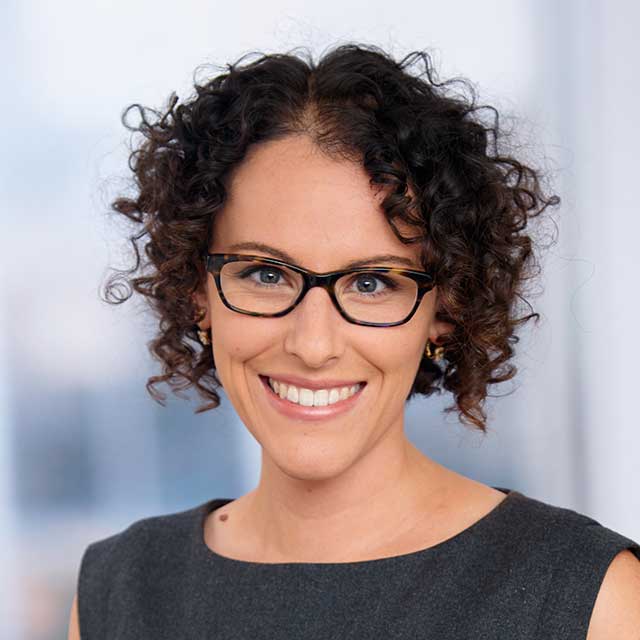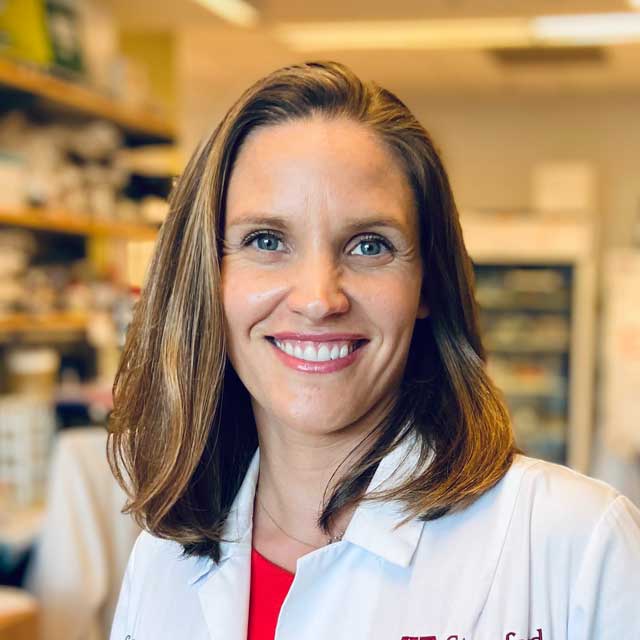
Winter 2024 Newsletter
Former Fellow Launches Lab Studying the Behavior of Parasitic Worms
Infecting One Billion People

2017 Fellow Astra Bryant, Ph.D., was recently named Assistant Professor in the Department of Physiology and Biophysics at the University of Washington. Astra earned her B.A. in biology from Bryn Mawr College and a Ph.D. in neuroscience from Stanford University. She completed her postdoctoral training at UCLA in the lab of Dr. Elissa Hallem. In the Hallem Lab, Astra studied how soil-dwelling, skin-penetrating parasitic worms hunt for human and animal hosts by sensing their body heat and odor. Astra’s research found that larvae first use their sense of heat to detect the presence of a potential host in their local environment, and then, moving toward warmth, they use their sense of smell to determine whether that heat source is a member of the preferred host species. “One of the most exciting aspects of my postdoctoral research was that I developed the first tools for studying neuronal function in parasitic worms, and my results were the first direct evidence that the sensory neural systems of parasitic worms are highly adapted to enable them to sense and respond to human hosts,” she explains.
Building on this work, the Bryant Lab uses an interdisciplinary, multi-scale approach to understand the molecular, cellular, and organismal adaptations that drive the thermosensory abilities of parasitic nematodes, or roundworms, that infect over 1 billion people worldwide. Gaining a better understanding of the parasitic worms’ behavior could lead to the development of preventive strategies, such as worm traps, as well as therapies that could prevent infections.
Astra hopes her lab’s work has broader applications, too. In nematodes, parasitism is a trait that evolved multiple times independently. The Bryant Lab is working to understand how specialized behaviors arise in animals. The focus on parasitic nematodes could provide a window into the evolution of species-specific behaviors.
As she reflects on her fellowship with the A.P. Giannini Foundation, Astra says she can’t speak highly enough about the supportive community of fellows in her cohort and alumni who were willing to provide advice when she was on the job market. She also expresses gratitude for the communications and leadership training. “As scientists, we’re not formally trained on how to manage people or how to be a leader in the lab,” she explains. “As a faculty member, one of my jobs is to train others, and the lessons from the A.P. Giannini Foundation’s programming are invaluable, and I’m passing that knowledge on to my trainees.”
Astra has received multiple awards for her research on parasitic worms, including the 2021 Boyer/Parvin Award for Excellence in Molecular Biology Research. To read more about Astra’s research, click here.
Current Fellow Wins Prestigious Leukemia Lymphoma Society’s
Special Fellow Award

Cailin Collins, M.D., Ph.D.
2021 Fellow Cailin Collins, M.D., Ph.D., is completing her fellowship training in hematology and oncology at Stanford University. She is carrying out her postdoctoral research in Ravindra Majeti’s lab, which seeks to understand the earliest stages of development of acute myeloid leukemia, or AML – one of the most aggressive and deadly forms of blood cancer.
AML develops as the result of an accumulation of mutations in our blood cells over the course of our lifetime. In AML, unlike other cancers, only a few mutations are necessary to result in cancer. Cailin is using CRISPR gene editing of human blood stem cells to study how those mutations lead to changes that ultimately result in AML. A cutting-edge aspect of Cailin’s research is the sequential process by which she introduces different mutations into her model. “If you want to study something that develops in the human body sequentially, we should be designing our models sequentially as well,” Cailin explains.
The Leukemia Lymphoma Society (LSS) agrees wholeheartedly with Cailin’s methodical approach and honored her with its Special Fellow Award. The LLS Special Fellow Award is a career development award aimed at more senior postdocs who are preparing for the transition to become independent investigators.
In addition to the LLS Special Fellow Award, Cailin recently received an award for Best Oral Presentation at Stanford’s Hematology and Oncology Research Retreat. Cailin credits the communications training that she received from Jerry Kay as part of the Foundation’s fellowship program for helping her to put together a story that is understandable and interesting to those who may not have a background in her field.
Cailin also learned through the communications training that effective public speaking requires a lot of preparation. “Often times, presentations that appear effortless are just the opposite,” she says. “You have to determine the story you want to tell and the points you want the audience to take home. You need to revisit that framework over time. It’s an iterative process. And of course, you have to practice your speech! You need to put a lot of work into your presentation in order for it to come off as effortless.”
To learn more about Cailin’s research, click here.
Recent Fellows’ Virtual Gathering Explored Leading with Integrity
“While it’s important to talk about principles, values, & responsibilities, we teach by what we do.”
~1985 Fellow Lawrence P. Garetto, clinical ethicist and Professor Emeritus at Indiana University School of Dentistry
Since 2018, the A.P. Giannini Foundation has offered its fellows leadership and communications training in addition to stipend support. As part of this programming, Executive Coach Mari Sciabica and Journalist-in-Residence Jerry Kay organize virtual alumni/fellow gatherings on topics that are relevant to researchers’ work across disciplines and sectors. These gatherings are designed to foster community between fellows and alumni, to explore leadership and communications concepts in real-world scenarios, and to build upon the leadership and communication skills that are explored during the APG fellowship program.
In the wake of the concerning discovery of research misconduct at Stanford, the most recent virtual alumni/fellow gathering explored leading with integrity: fostering a culture of accountability and creating environments devoid of research misconduct. The conversation was led by former fellows Dr. Lawrence (Larry) P. Garetto, clinical ethicist and Professor Emeritus at Indiana University School of Dentistry, and Dr. Sergey D. Stavisky, Assistant Professor and Co-Director of the UC Davis Neuroprosthetics Lab, who shared their perspectives on fostering cultures of psychological safety, accountability, and trust.
Larry emphasized the importance of leaders’ actions in setting the tone for those under his or her direction. “While it’s important to talk about principles, values, and responsibilities, we teach by what we do,” he said. When mistakes do happen, and Larry acknowledged that it is only human to make mistakes, it is important to own up to the mistake and to do so promptly. “Failure of leaders to respond to unethical actions or events desensitizes the professional community and results in an increased likelihood of unethical behavior.”
Sergey shared some of his personal experiences in mentoring junior members of his lab and the importance of setting expectations from the onset. Sergey is in the process of creating a lab manual that establishes lab norms, such as responding to e-mails within 24 hours, as well as stating the rules and regulations that the lab abides by. In addition, Sergey emphasized the importance of using disappointing results from an experiment as an opportunity to remind trainees that science is a meandering journey and to use unexpected results as a jumping-off point for the next experiment.
For those who are interested in contemplating this issue further, Larry highly recommended watching behavioral economist Dan Ariely’s TED Talk entitled, “Our Buggy Moral Code.”
Learn about future virtual gatherings of fellows and alumni in the Foundation’s newsletter and on its LinkedIn account.